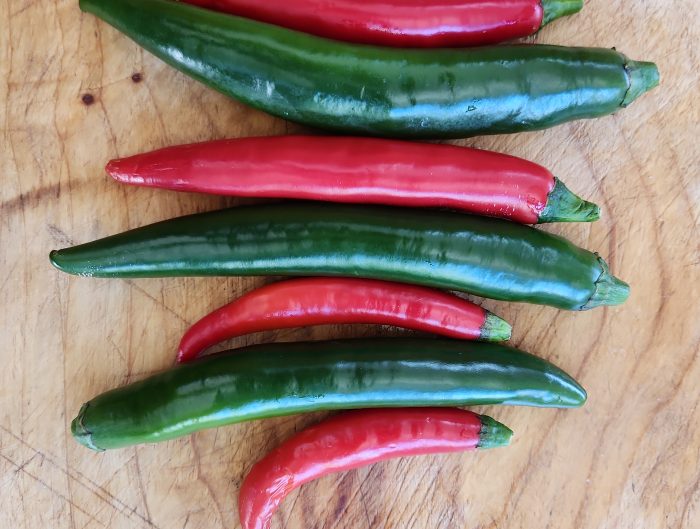A rose in every cheek: 100 years of Vegemite, the wartime spread that became an Aussie icon
There are roughly 22 million jars of Vegemite manufactured in the original Melbourne factory every year. According to the Vegemite website, around 80% of Australian households have a jar in the cupboard. The cultural status of Vegemite is so enduring that, in 2022, the City of Melbourne Council included the smell of the factory at 1 Vegemite Way, Fishermans Bend, in a statement of heritage significance.
After Decades of Being Ignored, a Nut From 20-Pound Pine Cones Is Back on Australian Menus
Before Europeans arrived, Aboriginal Australians met every three years for a massive celebration when bunya nuts were at their ripest. “Once bunya cones would start to show, Aboriginals in the Bunya Mountains would send out word that this was the year of the festival,” says Lee. “Then Indigenous peoples from all different tribes would travel from as far as western Queensland and Victoria to come.” For centuries, during these festivals, tribes put aside differences to trade, arrange marriages, and feast on the bunya nut: raw, roasted, boiled, and sometimes ground into flour and baked. “Bunya pines are a food source that people can carry with them,” Lee says, noting that people could simply gather and eat from these massive natural “lunch-boxes” while traveling to and from the event.
https://bit.ly/3DmRkwR
What this year’s El Niño means for wheat and global food supply
That said, there will be at least some negative effects. Even if crop failures in one region are fully offset by rich harvests in others, some people are going to bear the costs of El Niño’s direct impact. Australian farmers, for example, will be worse off if local wheat yields drop while global prices remain relatively stable. Moreover, because most countries are connected via trade, El Niño will have wider economic impacts. It could still lead to deeper societal issues in some region, such as famine and agro-pastoral conflicts
Broke and hungry, Pacific Islanders are abandoning Aussie farms in droves
A Samoan worker on her second stint in Australia, and who also spoke on the condition of anonymity, said her initial group went from 40 workers to eight: many left because they were not being given enough work. “Everyone knew the reason why we left home and came here to earn money and help our families back home,” she said. “When we don’t have hours at work that means we don’t have enough money to send home.” This masthead has seen the payslip for one worker who received just more than $5 from a 19-hour work week, after a number of deductions were made.
130-Year-Old Menus Show How Climate Change Is Already Changing What We Eat
As warming intensifies, the species in high enough abundance to make it to menus are continuing to change. As Cheung and Ng’s work predicts, local cool-water species like sockeye salmon will continue to decline on Vancouver menus. (In 2019, British Columbia saw its lowest salmon catch in more than 70 years.) In their place, southerly species are moving in. One of the most notable of these new arrivals isn’t a fish, but Humboldt squid, which have begun appearing in both fishers’ nets and in restaurants across the city.
Some Ozempic users say it silences ‘food noise’. But there are drug-free ways to stop thinking about food so much
“Food noise” or thinking about food constantly is not helpful to anyone’s mental health and wellbeing. When we become obsessed with any one line of thought (in this case, food), we can become consumed by it and it’s very hard to think about anything else. This can be very distressing. Some people taking the diabetes drug Ozempic for weight loss have reported a sudden silencing of food noise and cravings. But there are other ways to maintain a healthy balance when it comes to our internal food monologue.
Caged egg phase out endorsed for 2036 as states left to finalise end date
Egg Farmers Australia chief executive Melinda Hashimoto said she was concerned there would be a lack of national standard across the country after ministers didn’t come to an agreed date. “The whole aim of the standard and guidelines process was that the states were all working towards the same standards at the same time,” Ms Hashimoto said. “It’s disappointing that it’s been sent back to state and territories after all this time.”
Does artificial sweetener aspartame really cause cancer? What the WHO listing means for your diet soft drink habit
For a 70kg person you would need to consume about 14 cans (over 5 litres) of soft drink sweetened with aspartame a day to reach the acceptable daily intake. But we need to remember there may also be aspartame added in other foods consumed. So this is an unrealistic amount to consume, but not impossible. We also need to consider all the evidence on aspartame together. The foods we typically see aspartame in are processed or ultra-processed, which have recently also been shown to be detrimental to health.
Talking about eating less red and processed meat provokes strong feelings. That’s why this new evidence-based report is welcome
To improve the health of people and the planet we need to change how we produce meat. And we need to consume more diverse diets. These changes have to be sensitive to the local context. Changing what we eat must involve governments. Just as governments have a role in encouraging food manufacturers to avoid carcinogens or dangerous chemical additives, they have a role in promoting healthy diets from food systems that are sustainable over the long term. What does that look like? It could be investing in agro-ecological farming practices, tackling corporate concentration of meat production, penalising antibiotic overuse and subsidising healthy options like beans and legumes. Taxing the riskiest meat-based foods, such as heavily processed meat, is another option. Sensible policy-making may also help shift cultural norms in which meat is so highly valued.

